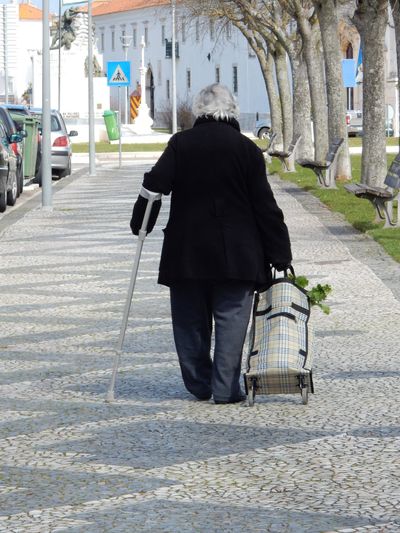
I went to the lab for a blood test this morning. It's a routine thing for me; checking in every two months to make sure a minor health issue isn't flaring up again. But it's a much bigger ordeal to get a blood test than it should be.
There are two clinics downtown that are within walking distance. There used to be three, but one closed a few months ago due to lack of staff. So now there are two.
The close one, two blocks away, is only available by appointment only, and the appointments are booked over a month in advance. I'm a pro though, so I booked today's appointment in April.
If I couldn't get an appointment there, I'd have to take my chances at the walk-in lab over on Cook Street - you either line up 45 minutes before the clinic opens, or you're waiting two hours minimum.
The Province is trying their darndest to run health care without medical professionals, it seems. Doctors are impossible to get unless you need an ambulance, and even blood techs are getting more and more rare. But I can manage - I'm flexible enough to take an entire day to draw blood if needed. If I had a traditional job, I'd have to book off work for the day to spend less than 10 minutes in the poking room. And I can use all the new-fangled apps to avoid speaking with actual humans as much as possible.
But there are lots, lots of folks who don't have the flexibility or the skills to use the system the way it works today.
This morning, an older woman in front of me was trying to understand her test results. She had her numbers, but didn't have the appropriate ranges for those numbers. It does you no good to know your whatzit count is 42. Where should it be at? If it should be 42,000 there's big trouble ahead, you know?
The folks at the lab couldn't give her that information. She either had to talk to her doctor (who was so booked out that it was essentially impossible) or use the LifeLabs app. This woman had no internet access at all. Not even email. Again, virtually impossible.
The elderly couple in the waiting room had a bigger problem. The fellow needed a test done and had been fasting for 12 hours to get the test. They had the appointment, but the lab didn't have the test requisition. The couple had used Telus E-Health to get the requisition and the requisition was 'in the app'. But she didn't have her password for the app with her.
So while he's wheezing and moaning and talking about how hungry he is, she's extremely worried that they'll have to start the lab booking process all over again and it'll be another month to get the test. What madness!
Now, the two young lab techs were able to help the woman with her E-Health app in between checking in patients and jabbing arms, including my own. The old gent was heading to the patient room as I left. But you know those two techs will be working flat out all day too, and likely catching hell for taking too long per patient.
It's a big mess, there is no doubt. The more we take humans out of the equation and try to replace them with apps and automated workflows, we're losing much of the good that doctors and nurses and pharmacists give to people.
Calmness, empathy, kindness all help us stay healthy and heal. We say we're automating to free up time from 'busy work' so we can be more calm, more kind, more empathetic. But we're doing the opposite - we're turning health care into factories and health practicioners into machines. We measure them like machines and pay them based on throughput.
The problem is that we're putting human beings through these new machines. And industrial health solutions are the last thing we need.